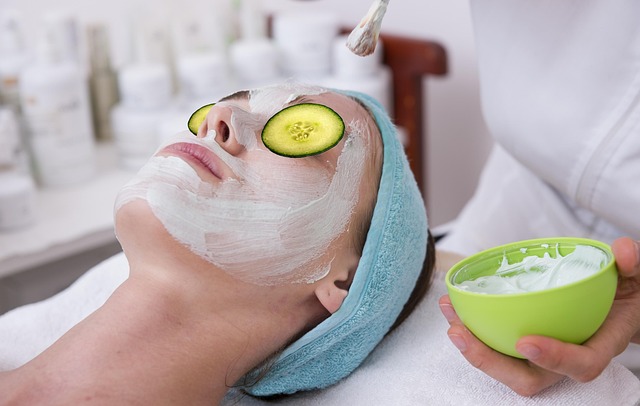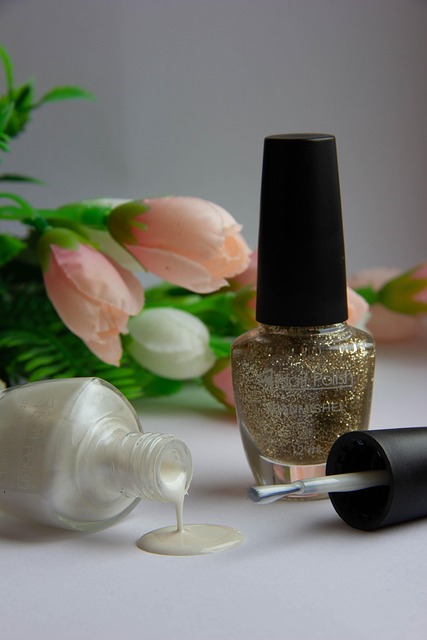Running a successful aesthetic or wellness clinic involves understanding and effectively managing the unique business liability landscape of the med spa industry. Med spas, offering a blend of medical and cosmetic treatments, face risks from product recalls, adverse reactions, professional negligence claims, and facility accidents. To mitigate these, owners must stay informed about local regulations, industry best practices, and patient safety trends, prioritizing proactive risk management strategies. This includes tailored insurance coverage for general and professional liabilities, meticulous client screening, staff training, and adherence to FDA regulations. By implementing these measures, med spas can enhance operational resilience, protect their reputation, and meet high client expectations in a competitive market.
In the dynamic landscape of aesthetic and wellness clinics, understanding and managing custom liability is paramount. This comprehensive guide, “Understanding Med Spa Liability,” delves into the intricate legal considerations shaping these practices. From risk management strategies for personalized treatments to navigating insurance options tailored for med spas, we explore essential best practices to mitigate legal risks. By embracing proactive measures, business owners can safeguard their operations and foster a culture of safety in today’s competitive market.
- Understanding Med Spa Liability: A Comprehensive Overview
- Legal Considerations for Aesthetic and Wellness Practices
- Risk Management Strategies for Customized Treatments
- Insurance Options to Protect Your Med Spa Business
- Common Liability Concerns in the Aesthetics Industry
- Best Practices for Mitigating Legal Risks at Med Spas
Understanding Med Spa Liability: A Comprehensive Overview

Running a successful aesthetic or wellness clinic involves more than just providing exceptional services; it also demands a thorough understanding of the unique business liability landscape within the med spa industry. These establishments, often known as med spas, offer a fusion of medical and cosmetic treatments, blurring traditional lines between healthcare and beauty. This merging of domains brings both opportunities and challenges, particularly when considering potential legal liabilities.
To mitigate risks effectively, med spa owners and operators must grasp the multifaceted aspects of business liability. From product recalls to adverse reactions, from professional negligence claims to facility-related accidents, a comprehensive risk management strategy is paramount. Staying informed about local regulations, industry best practices, and emerging trends in patient safety is essential to navigate this complex landscape successfully. By prioritizing proactive measures, med spas can enhance their operational resilience and safeguard their reputation.
Legal Considerations for Aesthetic and Wellness Practices

Running an aesthetic or wellness clinic comes with unique legal considerations, especially when it comes to business liability for med spas. These establishments often offer a range of services that can be both non-invasive and invasive, from facials to surgical procedures. Therefore, establishing robust risk management strategies is paramount.
One key aspect is understanding the scope of your insurance coverage. General liability insurance typically covers accidents and injuries on business premises, but policies vary. Specialized coverage for med spas may be necessary to address specific risks associated with aesthetic treatments, such as product recalls, malpractice claims related to procedures, or even client dissatisfaction resulting in lawsuits. Regular reviews of insurance policies are essential to ensure they align with your clinic’s evolving services and legal landscape.
Risk Management Strategies for Customized Treatments

In the realm of custom aesthetic and wellness treatments, where client expectations are high and outcomes vary, effective risk management is paramount for med spas. A robust strategy involves a multi-faceted approach to mitigate potential liabilities associated with personalized services. Firstly, these businesses should implement comprehensive insurance coverage tailored to their specific operations, addressing both general liability and professional liability aspects. This protection acts as a shield against financial loss in case of accidents or malpractice.
Additionally, meticulous client screening and informed consent processes are integral. By thoroughly evaluating clients’ medical histories and goals, med spas can anticipate potential risks and tailor treatments accordingly. Educating clients about the procedures, known side effects, and recovery processes fosters transparency, reducing misunderstandings that might lead to legal issues. Regular staff training on safety protocols and staying abreast of industry best practices further ensures a proactive approach to risk management in this dynamic sector.
Insurance Options to Protect Your Med Spa Business

When running an aesthetic or wellness clinic, also known as a med spa, it’s crucial to have comprehensive insurance coverage to safeguard your business from potential risks and liabilities. Business liability for med spas is essential as it protects against claims of bodily injury or property damage that may arise during routine procedures or interactions with clients. General liability insurance is a foundational policy that covers these basic risks, ensuring you’re prepared for unexpected incidents.
Moreover, specific coverage options tailored to the unique aspects of your med spa operations can provide added security. Professional liability insurance, also called errors and omissions (E&O) coverage, protects against claims of negligence or malpractice related to services provided. This is particularly important given the highly specialized nature of aesthetic and wellness treatments. Additionally, business interruption insurance can help mitigate losses incurred during unforeseen events that disrupt your clinic’s operations, ensuring financial stability in challenging times.
Common Liability Concerns in the Aesthetics Industry

In the dynamic landscape of aesthetics and wellness clinics, understanding common liability concerns is paramount for any aspiring or established business. Med spas, in particular, face a unique set of challenges due to the blend of medical and aesthetic services they provide. From injectables and lasers to skin care and body treatments, these facilities are at the forefront of enhancing physical appearance. However, this very focus on aesthetics introduces potential risks.
One prominent liability concern is negligence related to patient safety. This includes issues like incorrect product application, adverse reactions to treatments, or failure to obtain informed consent. Additionally, premises liability arises from clinic operations—slippery floors, poor lighting, or outdated equipment can lead to slips, falls, and other accidents. Compliance with regulatory standards, such as those set by the Food and Drug Administration (FDA) for medical devices and procedures, is also critical to mitigate legal risks, especially in the context of business liability for med spas.
Best Practices for Mitigating Legal Risks at Med Spas

To mitigate legal risks, med spas should adopt best practices that prioritize patient safety and informed consent. First, maintain thorough records of patient intake forms, treatment details, and aftercare instructions. These documents not only protect the clinic but also serve as evidence in case of any adverse events or disputes. Regularly reviewing and updating these protocols with industry standards and guidelines is crucial to stay ahead of changing legal landscapes.
Additionally, ensuring staff training on safety procedures, product knowledge, and proper administration techniques is vital. Informed consent should be obtained from every patient before any procedure, clearly outlining risks, benefits, and alternatives. Implementing robust communication strategies, offering post-treatment follow-ups, and fostering an open dialogue with patients can help prevent misunderstandings and build trust.
